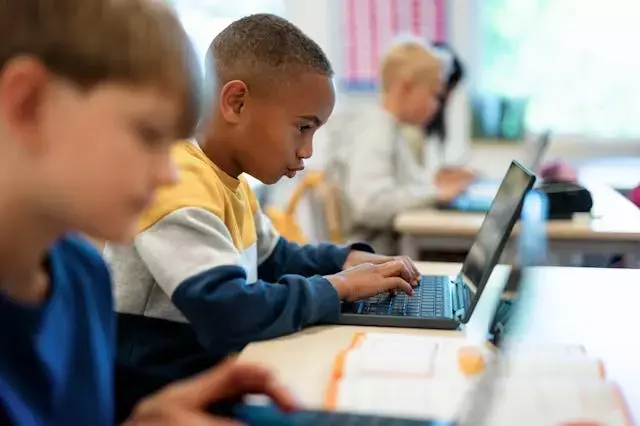
Educators are increasingly voicing their apprehension regarding the widespread integration of digital devices, such as Chromebooks and iPads, into the learning environment. Many teachers believe that the constant presence of screens in classrooms poses a significant challenge to maintaining student engagement and fostering genuine learning experiences. This sentiment is amplified by the fact that many children already spend a substantial amount of time on screens outside of school, making the classroom an extension of an already screen-saturated daily life. The reliance on technology for every aspect of lessons, from assignments to standardized testing, has led to a perceived decline in students' ability to focus on non-digital tasks and a decreased interest in traditional learning methods like reading physical books or writing by hand.
The concerns raised by teachers are supported by recent findings, with a significant majority of educators reporting that school-provided devices often serve as distractions, leading students to engage in activities unrelated to their coursework. This has resulted in a noticeable deterioration of essential skills such, as handwriting and spelling, and a reduced capacity for sustained attention on challenging academic tasks that lack a 'gamified' element. The American Academy of Child & Adolescent Psychiatry's recommendations on screen time further underscore these worries, suggesting that excessive exposure to screens can negatively impact sleep, academic performance, and even expose children to potentially harmful online content. This situation prompts a critical re-evaluation of current educational technology policies, with many advocating for a more balanced approach that reintroduces hands-on learning and limits screen usage in classrooms.
The ongoing dialogue among educators, parents, and researchers underscores a fundamental question about the future of education: how can we effectively leverage technology's benefits while safeguarding traditional learning values and promoting healthy developmental habits? It's a complex challenge that calls for innovative solutions, such as designated computer lab times rather than ubiquitous personal devices, and a renewed emphasis on fostering skills that extend beyond digital proficiency. Striking the right balance is crucial to ensure that technology serves as an enhancement to, rather than a detriment to, a well-rounded and engaging educational experience.
